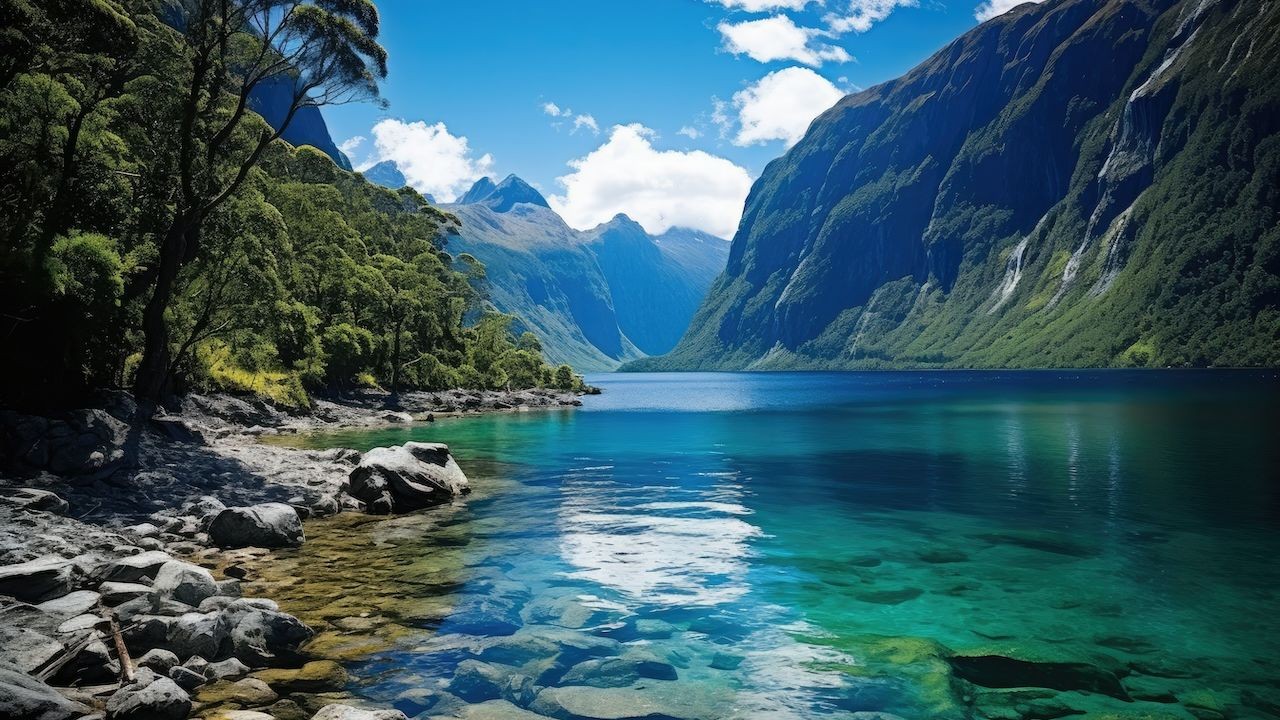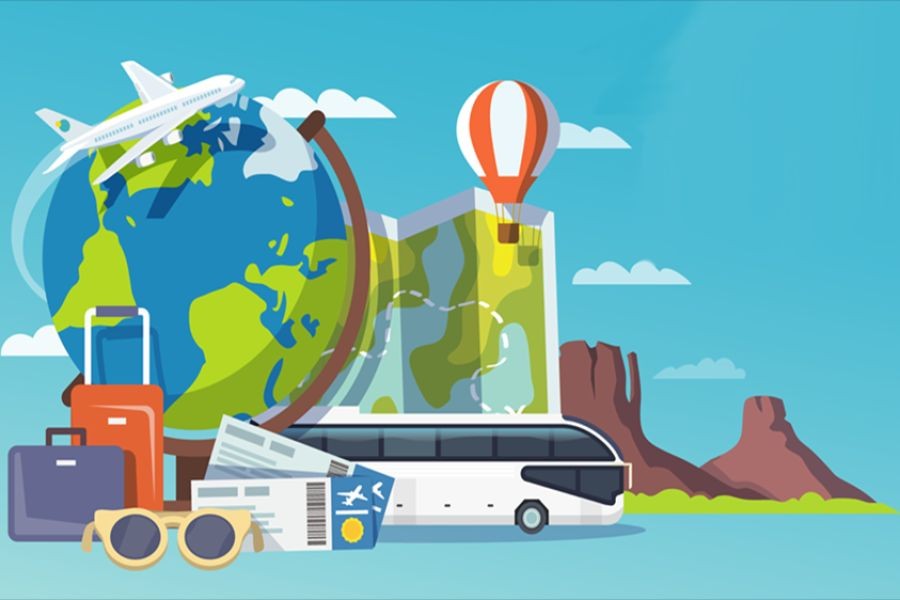New Zealand, renowned for its breathtaking landscapes and commitment to environmental conservation, is a paradise for eco-tourism enthusiasts. As the global demand for sustainable travel grows, New Zealand's eco-tourism sector is not only thriving but also contributing significantly to the local economy. According to the Ministry of Business, Innovation and Employment (MBIE), eco-tourism in New Zealand has seen a steady growth rate of 5% annually over the past decade. This article delves into ten stunning eco-tourism destinations across New Zealand, offering insights into their unique offerings and the larger economic impact on the region.
1. Fiordland National Park
Fiordland National Park, a UNESCO World Heritage site, boasts awe-inspiring fjords, lush rainforests, and diverse wildlife. It offers a pristine escape for those seeking a connection with nature. The park's conservation efforts not only preserve its natural beauty but also attract thousands of eco-conscious tourists annually, boosting the local economy through tourism spending.
2. Abel Tasman National Park
Famous for its golden beaches and clear waters, Abel Tasman National Park is a haven for sea kayaking and coastal hiking. The park's successful conservation projects have restored native habitats, making it a model for sustainable tourism. According to Stats NZ, tourism in the region contributes significantly to local employment, with many businesses relying on eco-tourists.
3. Tongariro National Park
Home to the iconic Tongariro Alpine Crossing, this park offers breathtaking volcanic landscapes. Its cultural significance and natural beauty make it a must-visit destination. The park's management focuses on minimizing environmental impact while promoting cultural heritage, aligning with New Zealand's sustainable tourism policies.
4. Kaikoura
Known for its marine wildlife, Kaikoura offers unique opportunities for whale watching and dolphin encounters. The town's commitment to eco-tourism is evident in its marine protection initiatives. The local economy thrives on eco-tourism, with many operators offering education-focused tours that highlight conservation efforts.
5. Stewart Island
Stewart Island is a sanctuary for bird watchers and wilderness lovers. The island's predator-free initiative has been successful in protecting native bird species, attracting eco-tourists who appreciate the untouched natural environment. The island's economy benefits from eco-tourism through local tours and accommodations.
6. Coromandel Peninsula
The Coromandel Peninsula, with its stunning beaches and native forests, is a popular destination for eco-tourists. Efforts to preserve its natural beauty have resulted in increased visitor numbers, contributing to local businesses and employment. The community's involvement in conservation projects underscores the importance of sustainable tourism.
7. Aoraki/Mount Cook National Park
Aoraki/Mount Cook National Park offers dramatic alpine landscapes and stargazing opportunities. The park's focus on preserving its pristine environment while providing eco-friendly tourism activities serves as a benchmark for sustainable travel. Tourism here supports local economies, with many businesses offering eco-conscious services.
8. The Catlins
The Catlins, with its rugged coastlines and diverse wildlife, is a lesser-known gem for eco-tourists. Its remote location and conservation efforts provide a unique experience for visitors seeking peaceful, natural beauty. Local businesses benefit from eco-tourism, with many offering guided tours that emphasize environmental education.
9. Rotorua
Rotorua, famous for its geothermal activity and Maori culture, integrates eco-tourism with cultural experiences. The region's focus on sustainable tourism practices has increased visitor engagement, making it a significant contributor to the local economy. Rotorua's commitment to preserving both natural and cultural heritage attracts eco-conscious travelers worldwide.
10. Marlborough Sounds
Known for its picturesque waterways and abundant marine life, Marlborough Sounds offers eco-friendly cruises and wildlife tours. The region's dedication to conservation ensures the preservation of its natural beauty, attracting tourists seeking sustainable travel experiences. Tourism in Marlborough Sounds is a vital part of the local economy, supporting numerous jobs and businesses.
Case Study: Kaikoura's Marine Tourism Success
Kaikoura, a prime example of successful eco-tourism, has transformed its economy through sustainable practices. The town's focus on marine protection and eco-friendly tourism has led to a thriving local economy. According to a report by the University of Canterbury, Kaikoura's whale-watching industry alone contributes approximately NZD 134 million annually to the New Zealand economy. This success story highlights the potential of eco-tourism to drive economic growth while preserving natural resources.
Common Myths & Mistakes in eco-tourism
Myth: eco-tourism is only about conservation.
Reality: While conservation is a key aspect, eco-tourism also focuses on cultural preservation and community involvement.
Myth: All eco-tourism activities are sustainable.
Reality: Not all eco-tourism operators follow sustainable practices. It's essential to research and choose operators with proven eco-friendly credentials.
Future Trends & Predictions
As global awareness of climate change and sustainability grows, New Zealand's eco-tourism industry is poised for further expansion. A report by the Reserve Bank of New Zealand predicts a 7% annual growth in eco-tourism by 2030, driven by increasing demand for sustainable travel experiences. This trend presents opportunities for local businesses to innovate and capitalize on eco-conscious travelers.
Final Takeaways
- eco-tourism in New Zealand is a significant economic driver, contributing to local employment and business growth.
- Sustainable tourism practices are crucial for preserving natural and cultural heritage.
- Businesses should focus on eco-friendly initiatives to attract the growing number of eco-conscious travelers.
Are you ready to explore New Zealand's stunning eco-tourism destinations? Share your thoughts and experiences in the comments below!
People Also Ask (FAQ)
How does eco-tourism impact New Zealand's economy?
eco-tourism significantly boosts local economies by creating jobs and supporting sustainable businesses, with some areas like Kaikoura contributing millions annually.
What are the biggest misconceptions about eco-tourism?
Many believe eco-tourism is purely about conservation, but it also involves cultural preservation and community engagement.
What are the best strategies for implementing eco-tourism?
Focus on sustainable practices, community involvement, and cultural preservation to attract eco-conscious travelers.
Who benefits the most from eco-tourism?
Local communities, conservation projects, and eco-conscious travelers benefit from eco-tourism's focus on sustainability and cultural exchange.
Related Search Queries
- eco-tourism destinations in New Zealand
- Sustainable tourism in New Zealand
- Best eco-friendly tours in New Zealand
- Impact of eco-tourism on New Zealand economy
- Top sustainable travel experiences in NZ































